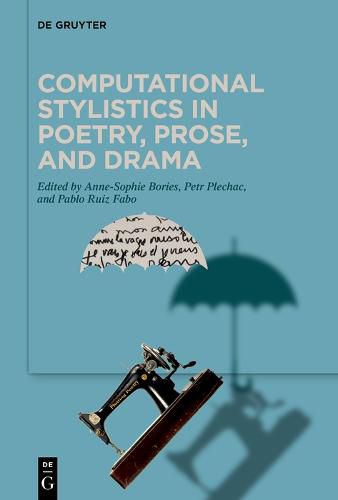Readings Newsletter
Become a Readings Member to make your shopping experience even easier.
Sign in or sign up for free!
You’re not far away from qualifying for FREE standard shipping within Australia
You’ve qualified for FREE standard shipping within Australia
The cart is loading…






This volume responds to the current interest in computational and statistical methods to describe and analyse metre, style, and poeticity, particularly insofar as they can open up new research perspectives in literature, linguistics, and literary history. The contributions are representative of the diversity of approaches, methods, and goals of a thriving research community. Although most papers focus on written poetry, including computer-generated poetry, the volume also features analyses of spoken poetry, narrative prose, and drama. The contributions employ a variety of methods and techniques ranging from motif analysis, network analysis, machine learning, and NLP, including deep learning. The volume pays particular attention to annotation, one of the most basic practices in computational stylistics. This contribution to the growing, dynamic field of digital literary studies will be useful to both students and scholars looking for an overview of current trends, relevant methods, and possible results, at a crucial moment in the development of novel approaches, when one needs to keep in mind the qualitative, hermeneutical benefit made possible by such quantitative efforts.
$9.00 standard shipping within Australia
FREE standard shipping within Australia for orders over $100.00
Express & International shipping calculated at checkout
Stock availability can be subject to change without notice. We recommend calling the shop or contacting our online team to check availability of low stock items. Please see our Shopping Online page for more details.
This volume responds to the current interest in computational and statistical methods to describe and analyse metre, style, and poeticity, particularly insofar as they can open up new research perspectives in literature, linguistics, and literary history. The contributions are representative of the diversity of approaches, methods, and goals of a thriving research community. Although most papers focus on written poetry, including computer-generated poetry, the volume also features analyses of spoken poetry, narrative prose, and drama. The contributions employ a variety of methods and techniques ranging from motif analysis, network analysis, machine learning, and NLP, including deep learning. The volume pays particular attention to annotation, one of the most basic practices in computational stylistics. This contribution to the growing, dynamic field of digital literary studies will be useful to both students and scholars looking for an overview of current trends, relevant methods, and possible results, at a crucial moment in the development of novel approaches, when one needs to keep in mind the qualitative, hermeneutical benefit made possible by such quantitative efforts.